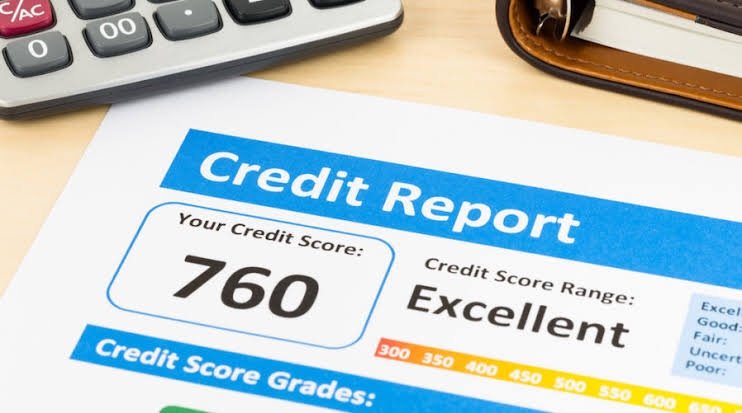
Study Reveals a Home Loan Pushes Lower Credit Score

Effects of Mortgage On Credit Score
The duration over which your credit scores has to go till it hits the bottom is over 5 months and climbing back up is about that same period. Taking out a new loan or credit card while you still have low score could cause you to pay back at a higher interest as compared with what you would pay if you wait till the number climbs up.
The effect of a mortgage on your credit score can be very drastic. If you wait till your score is sufficiently good enough to make you qualified to get a home loan, that purchase will, in turn, cause your number to go down. According to LendingTree’s newly released study, the drop on an average is 15 points even though the score slide of some consumers can be as high as 40 points.

Taking a loan when you still have a mortgage to pay can cause your credit score to drop by at least 15 points
According to LendingTree’s chief economist, Tendayi Kapfidze, having high utilization on your credit cards or any other credit line and going ahead to take a mortgage which is relatively large compared to both your income and your credit history can lead to more significant decline.
Study’s Focus
The study took into consideration credit scores of over 5,000 consumers that took out mortgages in the year 2015 and also 2016. On the average, the credit scores spent an average of 160 days before falling to the lowest point following the house purchase. It also took another average of 160 days before it returned to the former levels bringing it to a total of almost 11 months.
The credit reporting firms, i.e. Experience, TransUnion and Equifax generally consider the total debt burden when they are calculating a person’s numbers. In addition, they consider the extent to which a person has been able to effectively manage debt in the past and that includes how soon you made the necessary payments.
On a general outlook, the higher a person’s score, the better the terms a person can get on a different range of debts. In essence, if the score reduces after you take out a mortgage, then you have to pay a higher interest rate in a car loan or a credit card. Kapfidze advises that when the credit score drops, people should wait before they take on additional credit obligations.

Among other things, credit reporting Firms consider the total debt burden when calculating the numbers
Cities With Fast Recovery Time
There are some cities that have fast recovery time for credit score after mortgages as compared with other cities. The average initial score in Richmond is 693 and the average decline in the credit score here is 13. In total, there are 266 days till recovery. Also, Minneapolis has a fast recovery. The average initial score here is 701 and the average decline in the credit score is 11. In total, there are 267 days till recovery in Minneapolis. Lastly, the average initial score in Salt Lake City is 704 and it has an average decline credit score of 15. In total, there are 272 days till recovery here.

The average initial score in Minneapolis is 701
It is pertinent to, however, note that the period of time it takes after settling on a mortgage before your lender goes ahead to inform the credit reporting firms can run into months. LendingTree reports that the credit scores are between 300 and 850 and scores higher than 700 is considered to be good or even excellent.
A person who has a fair credit score between the range of 580 and 669 will get to pay nearly $45,000 extra as interest all through their lifetime on credit cards and loans as compared to those consumers that have a good credit score which is 740 and above as indicated by a different research conducted by LendingTree.
Making Payment On Your Mortgage
The result of an Experian data that was released earlier in the year revealed that the on an average, the national mortgage debt comes in at $201,811. The research, however, found that some states have averages that are higher than that. For instance, Washington D.C’s average mortgage debt is $406,035 and that of California is $347,652. That translates to lots of debt added to the credit report.
However, if you consistently make payment on your mortgage and you don’t take on new debt then the credit score will recover. According to Kapfidze, the credit score will ultimately recover and perform better since the mortgages help the lender know that you are responsible as a borrower.
More in Investments
-
`
Celebrity Couples Who Have Ended Their Relationships in 2025
2025 has already seen its fair share of celebrity breakups, and the year is just getting started. From heartfelt announcements to...
February 6, 2025 -
`
How Trump’s Policies Will Reshape Artificial Intelligence in the U.S.
The United States witnessed a significant political shift as Donald Trump took the presidential oath once again. His return to the...
January 31, 2025 -
`
Millie Bobby Brown Shuts Down Age-Shamers with a Powerful Message
From the moment Millie Bobby Brown first appeared as Eleven in “Stranger Things,” she captured hearts worldwide. But growing up in...
January 25, 2025 -
`
Why Outsourcing Payroll Services Is a Smart Business Move
Managing payroll is no small task—it’s a crucial part of any business that ensures employees are paid accurately and on time....
January 15, 2025 -
`
These AI Stocks Should Be on the Watch List of Investors in 2025
The buzz around AI stocks is growing louder than ever. With artificial intelligence shaping industries like healthcare, finance, and tech, smart...
January 8, 2025 -
`
Why the Starbucks Workers Strike Is Expanding Across U.S. Cities
The Starbucks workers’ strike has gained significant momentum, with employees in more U.S. cities joining the movement to address unresolved issues...
January 2, 2025 -
`
Are Shawn Mendes and Camila Cabello Still Close After Breakup?
The connection between Shawn Mendes and Camila Cabello continues to intrigue fans worldwide. Their shared history, from chart-topping collaborations to a...
December 24, 2024 -
`
Here’s What It Takes to Become a Professional Physical Therapist
Physical therapy is a career that blends science, empathy, and problem-solving to help people recover from injuries or improve mobility. Knowing...
December 19, 2024 -
`
GM Battery Cell Plant Deal Marks $1 Billion Ownership Shift
General Motors (GM) plans to sell its stake in a $2.6 billion electric vehicle battery cell plant in Lansing, Michigan. This...
December 11, 2024















You must be logged in to post a comment Login